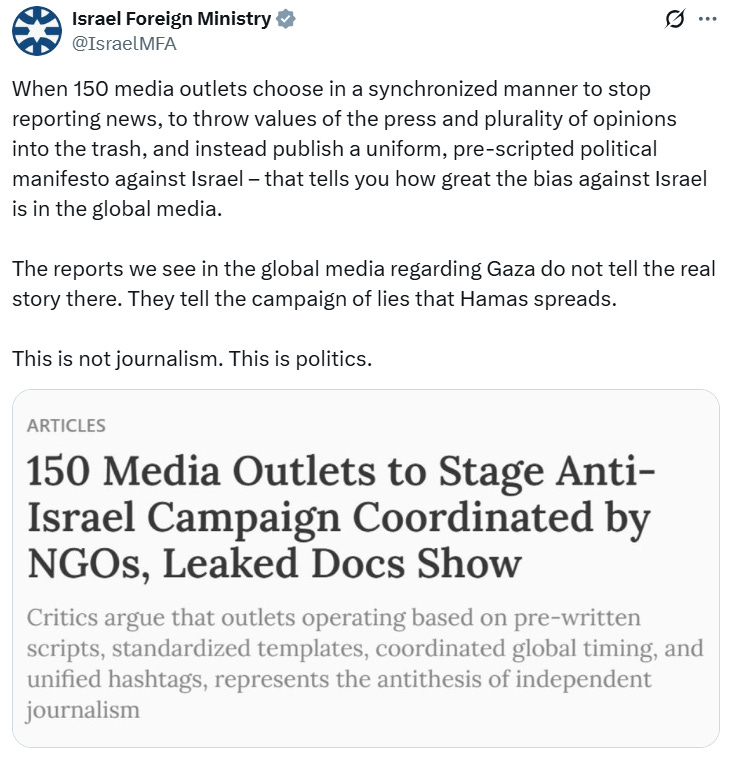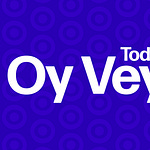On Monday, over 250 media outlets from more than 70 countries participated in a coordinated global media blackout, according to Reporters Without Borders (RSF), which co-organized the event alongside the global campaigning movement Avaaz and the International Federation of Journalists.
The campaign manifested across multiple media formats through what appeared to be orchestrated messaging. Print newspapers published front pages in black with identical written messages, television and radio stations interrupted regular programming to broadcast synchronized statements, and online media outlets either blacked out their homepages or displayed uniform solidarity banners. Individual journalists also participated by posting coordinated messages on their social media accounts.
The Israeli Foreign Ministry strongly condemned the campaign, accusing the participating organizations of spreading Hamas's "campaign of lies" through the media. In response to a post featuring a Jewish online publication's article, the ministry posted on X: "When 150 media outlets choose in a synchronized manner to stop reporting news, to throw values of the press and plurality of opinions into the trash, and instead publish a uniform, pre-scripted political manifesto against Israel – that tells you how great the bias against Israel is in the global media."

This level of coordination raises serious concerns about editorial independence and the integrity of press freedom. When advocacy organizations effectively dictate uniform content, timing, and messaging to hundreds of newsrooms simultaneously, it challenges fundamental principles of independent journalism.
The campaign's orchestrated nature—with media outlets abandoning their editorial autonomy to deliver identical political messaging—ironically undermines the very press freedom it claims to defend.
Read Jewish Onliner’s initial coverage of the campaign below:











